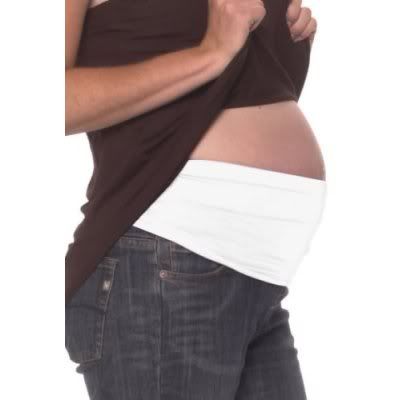How your baby's growing:
The most dramatic development this week: Reflexes. Your baby's fingers will soon begin to open and close, his toes will curl, his eye muscles will clench, and his mouth will make sucking movements. In fact, if you prod your abdomen, your baby will squirm in response, although you won't be able to feel it. His intestines, which have grown so fast that they protrude into the umbilical cord, will start to move into his abdominal cavity about now, and his kidneys will begin excreting urine into his bladder.

Meanwhile, nerve cells are multiplying rapidly, and in your baby's brain, synapses are forming furiously. His face looks unquestionably human: His eyes have moved from the sides to the front of his head, and his ears are right where they should be. From crown to rump, your baby-to-be is just over two inches long (about the size of a lime) and weighs half an ounce.
How your life's changing:
Your uterus has grown to the point where your healthcare provider can now feel the top of it (the fundus) low in your abdomen, just above your pubic bone. Though you probably won't need maternity clothes for several more weeks yet, you've no doubt noticed that your waist is thickening and that you're more comfortable in loose, less restrictive clothing.
You may begin to experience heartburn (also called acid indigestion), a burning sensation that often extends from the bottom of your breastbone to your lower throat. Many women get heartburn for the first time during pregnancy, and those who've previously had bouts of heartburn may find that it worsens. During pregnancy, the placenta produces a large amount of the hormone progesterone, which relaxes the valve that separates the esophagus from the stomach. Particularly when you're lying down, gastric acid can seep back up the pipe, which causes the uncomfortable burning sensation. For many women the problem doesn't begin (or worsen) until later in pregnancy, when your growing uterus starts to push up on your stomach. The discomfort may range from mildly annoying to intense and distracting.
You may begin to experience heartburn (also called acid indigestion), a burning sensation that often extends from the bottom of your breastbone to your lower throat. Many women get heartburn for the first time during pregnancy, and those who've previously had bouts of heartburn may find that it worsens. During pregnancy, the placenta produces a large amount of the hormone progesterone, which relaxes the valve that separates the esophagus from the stomach. Particularly when you're lying down, gastric acid can seep back up the pipe, which causes the uncomfortable burning sensation. For many women the problem doesn't begin (or worsen) until later in pregnancy, when your growing uterus starts to push up on your stomach. The discomfort may range from mildly annoying to intense and distracting.













